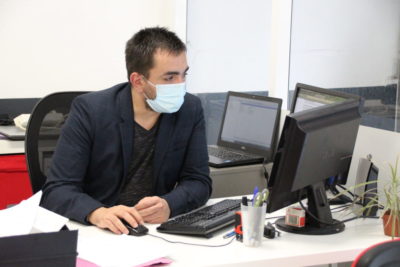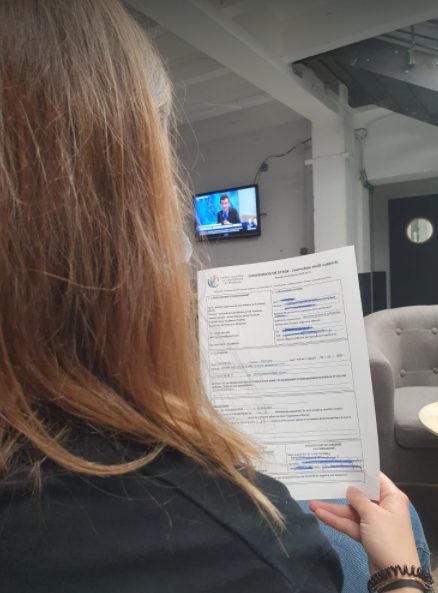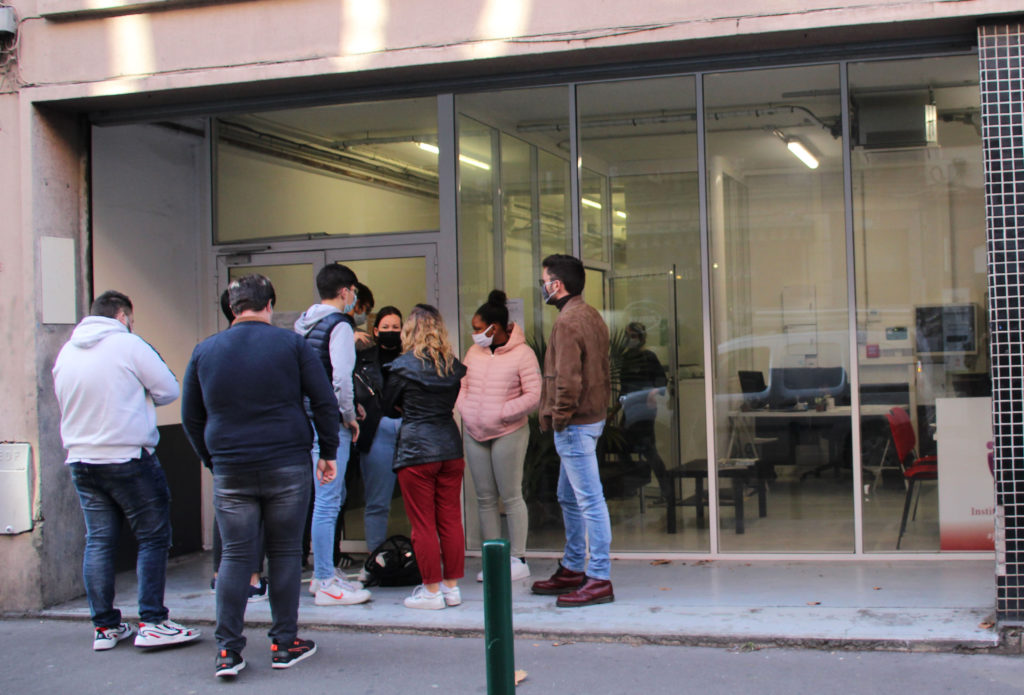
Thomas Gourdin is a freelance journalist. He is a graduate of the EJC of Blagnac. Thomas Gourdin writes for various media: Touléco, le Journal Toulousain, L’n You. He has published several one-shots for local and national newspapers: Journal des Entreprises, Paris Match, Elle… Today, he is, in addition, the Training Director at the ISJT. The education of future journalists is in his hands…
Marie-Amélie Masson: For you, what is a journalist?
Thomas Gourdin: “A journalist is a person who goes out into the field, looking for information and then decrypts it, sorts it out, prioritizes it. He transmits them in the clearest and most comprehensible way possible to the general public.
Learning to become a journalist changes as the years go by. But the very definition of journalism is still the same as it was fifty years ago.”
M-A M: So, what is this teaching composed of?
T.G: “We teach them the love of the field. We find information from the field, so that’s where it starts. You have to love to talk, discuss with people and be curious. Already these are things that cannot be learned in theory class. We try to stimulate as much as possible throughout the course.
To operate as a journalist, there are essential codes. In the written press, for example, writing codes are required. Frameworks and basic rules are the techniques for communicating the information to the general public. This is the bare minimum.”
M-A M: Doesn’t having so many rules hinder everyone’s freedom and style?
T.G:“If you want to deviate from the line, you have to master the line perfectly. Indeed, it is not at school that we leave the most freedom to the students.
When you deviate from the learning line that has been drawn, you have to think about what editorial value you can add and what it can bring. But in order to do this, you need the baseline. Otherwise you can go very far from what is effective in terms of information.”
“It’s better for them to make the mistake here than when they are on internships or hiring.”
Thomas Gourdin
M-A M: So what are the important values taught in the teaching of journalism ?
T.G: “Intellectual honesty, respect for the work of others, a certain attachment to facts, giving a voice to as many people as possible. This is important because it follows some basic principles: no plagiarism or photo stealing, no deformation of facts, giving both sides a voice in a debate. These are essential deontological notions.”
M-A M: Mentioning the debate, let’s talk about freedom of expression…
T.G: “It is very important to protect it. To force the debate, editorial conferences are necessary. Students tend to restrict themselves. They come with some ideals. So they have to be taught that this is also freedom of expression and that, on a subject, you have to speak out on all points of view.
What the person says is not repressed by the law and therefore has the right to say it. It is our duty to make space in the public debate for them. Obviously, this is different according to the editorial lines of each media.”
M-A M: Editorial conferences are one way, but are there other things to teach students?
T.G: “I am a big believer in learning from mistakes. They are in school to learn, we are their lifesaver and then they can have the luxury of jumping in the water. It’s better for them to make the mistake here than when they are on internships or hiring. Sometimes I let them go without all the keys and I can see where they are going. Then, during the debriefing, the mistakes of some benefit everyone.
Sometimes, as a professional and a teacher, there are things that come automatically and that we don’t necessarily think about. Letting them make mistakes allows us to see and correct them right away.”
M-A M: These students will be the journalists of tomorrow…
T.G: “The focus is on learning how the digital world works. Today, the digital switchover has got off to a good start. All the journalists who are going to graduate from school are going to have these digital skills, social networks, and so on.
All journalists will have to learn how to use these tools. If a newsroom has gaps in digital skills, it will look for someone to make up for those weaknesses. These skills can complement a newsroom with journalists who are not comfortable with digital technology. A newspaper doesn’t do itself.
But just because you’re learning a lot about digital media, doesn’t mean you can forget the old-fashioned methods of journalism. The field, the ability to get by, the contacts, the network, that’s still enough to make a very good journalist. This is unlikely to change tomorrow.
The journalist will never be 100% digital. The pen and the notepad will remain indispensable.”


